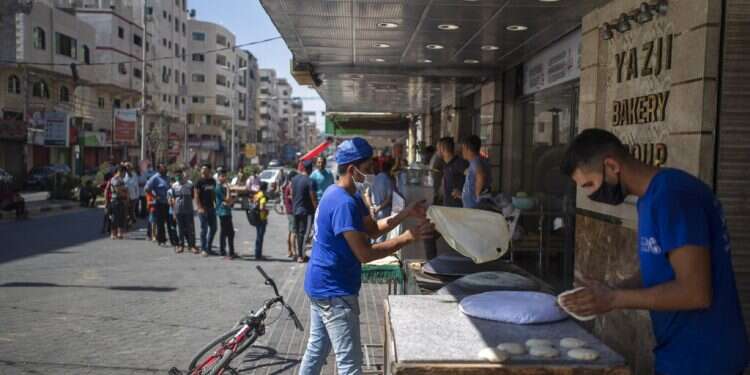A 48-hour curfew took hold Tuesday in the Gaza Strip for the first time since the start of the global pandemic, a day after the first cases of community transmission of the coronavirus were detected.
Schools, businesses, markets and mosques were ordered to close and police patrols stopped and inspected the few cars passing through checkpoints.
Follow Israel Hayom on Facebook and Twitter
In the al-Maghazi refugee camp, home to the four new confirmed cases, policemen from Hamas roamed the empty streets to enforce the lockdown.
On Monday, authorities announced that four members of a family had tested positive for COVID-19, the first infections outside quarantine facilities.
All Gazans returning home through Israel or Egypt have been required to remain isolated at designated centers for 21 days, to prevent the virus from spreading in the impoverished, blockaded, and densely populated territory.
Authorities have detected 110 cases in the quarantine facilities since March, and 72 of them have recovered. A woman with underlying health problems was the sole death from the disease.
Abdelnasser Soboh, director of the World Health Organization's Gaza office, said cases of local transmission of the virus were expected to appear at some point. "This was not surprising to us," he said.
He added that authorities were following the correct procedures to track the source of the infection and the number of people who were in contact with patients.
The health ministry said a woman from Gaza who was allowed to travel to Jerusalem for medical treatment had tested positive. Health workers in Gaza then tested her family members, revealing the four cases.
Gaza's heath care infrastructure has been hollowed out by years of war and isolation, and would be ill-equipped to cope with a major outbreak. Gaza's health facilities only have around 100 ventilators, more than half of which are already being used.
Soboh of the WHO said that his organization managed to bring in 10 new ventilators for a special field hospital for the coronavirus patients in Gaza, raising the number of these machines at that hospital to 50. "We can deal with hundreds of patients, but not thousands," he said.
Subscribe to Israel Hayom's daily newsletter and never miss our top stories!




